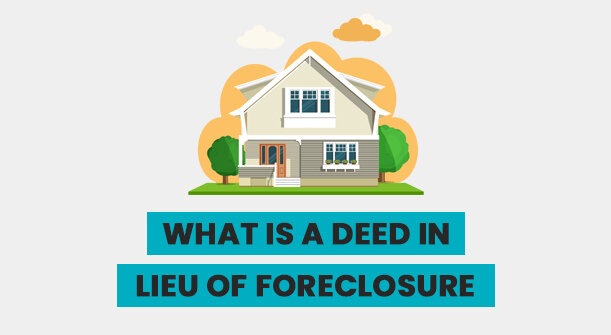
If you’re struggling to make your mortgage payments and facing the possibility of foreclosure, you may have heard of a deed in lieu of foreclosure. This legal process allows you to transfer ownership of your home to the lender, potentially avoiding the lengthy and damaging foreclosure process.
A deed in lieu of foreclosure is a voluntary agreement between you and your mortgage lender, where you transfer the title of your home to the lender in exchange for being released from the remaining mortgage debt. This process can be a viable alternative to foreclosure, but it’s essential to weigh the pros and cons carefully before making a decision.
How Does Foreclosure Work in South Carolina?
The foreclosure process in South Carolina typically follows these steps:
- Missed Payments: If you miss several mortgage payments, your lender will issue a notice of default, giving you a chance to catch up on the missed payments.
- Notice of Foreclosure: If you fail to catch up on the missed payments, the lender will file a notice of foreclosure with the court and schedule a foreclosure sale.
- Foreclosure Sale: Your home will be sold at a public auction, and the proceeds will be used to pay off the outstanding mortgage balance, fees, and any other liens or judgments against the property.
- Deficiency Judgment: If the sale proceeds are insufficient to cover the entire mortgage debt, the lender may pursue a deficiency judgment against you for the remaining balance.
Common Circumstances That Lead to Foreclosure
While missing mortgage payments is the primary reason for foreclosure, there are several common circumstances that can contribute to this situation:
Job Loss
Losing your job or experiencing a significant reduction in income can make it challenging to keep up with your mortgage payments, potentially leading to foreclosure.
Financial Hardship
Unexpected expenses, such as medical bills or other emergencies, can strain your finances and make it difficult to prioritize your mortgage payments.
The Mortgage Is Upside Down
If the value of your home drops significantly below the outstanding mortgage balance, you may be tempted to walk away from the property, leading to foreclosure.
Late Mortgage Payments
Even if you’re only a few months behind on your mortgage payments, your lender may initiate the foreclosure process to protect their interests.
Adjustable-Rate Mortgages (ARMs)
If you have an adjustable-rate mortgage (ARM) and interest rates rise significantly, your monthly payments may become unaffordable, increasing the risk of foreclosure.
How Does Foreclosure Affect Homeowners and Lenders?
Foreclosure can have severe consequences for both homeowners and lenders. For homeowners, a foreclosure can significantly damage their credit score, making it difficult to obtain future loans or credit. Additionally, they may be responsible for paying any deficiency balance owed to the lender after the foreclosure sale.
For lenders, foreclosure is a time-consuming and costly process. They must pay legal fees, maintenance costs, and potentially take a loss if the foreclosure sale doesn’t cover the outstanding mortgage balance.
What Is a Deed in Lieu of Foreclosure?
A deed in lieu of foreclosure is a legal process where you, as the homeowner, voluntarily transfer the ownership of your property to the mortgage lender. In exchange, the lender agrees to release you from the remaining mortgage debt and avoid the foreclosure process.
To qualify for a deed in lieu of foreclosure, you typically need to meet certain requirements set by the lender, such as demonstrating financial hardship and being unable to catch up on missed payments. The lender may also require you to vacate the property by a specific date and leave it in good condition.
What Are the Benefits of a Deed in Lieu of Foreclosure?
- Avoids Foreclosure: By pursuing a deed in lieu of foreclosure, you can avoid the lengthy and damaging foreclosure process, which can negatively impact your credit score and future borrowing ability.
- Potential Debt Relief: In some cases, the lender may agree to forgive a portion or all of the remaining mortgage debt, providing you with significant debt relief.
- Faster Resolution: A deed in lieu of foreclosure can be a faster process than a traditional foreclosure, allowing you to move on with your life more quickly.
- Potential for Relocation Assistance: Some lenders may offer relocation assistance or cash incentives to encourage homeowners to pursue a deed in lieu of foreclosure.
What Are the Drawbacks of a Deed in Lieu of Foreclosure?
- Credit Score Impact: While a deed in lieu of foreclosure may have a less severe impact on your credit score than a foreclosure, it will still negatively affect your credit rating.
- Tax Implications: If the lender forgives a portion of your mortgage debt, you may be required to pay income taxes on the forgiven amount.
- Potential Deficiency Judgment: In some cases, the lender may still pursue a deficiency judgment against you for any remaining mortgage balance after the deed in lieu of foreclosure.
- Relocation Challenges: You will need to vacate the property by the agreed-upon date, which can be challenging if you don’t have alternative housing arrangements in place.
How to Negotiate a Deed in Lieu of Foreclosure
If you’re considering a deed in lieu of foreclosure, it’s essential to negotiate the terms with your lender carefully. Consult with a real estate attorney or a housing counselor to ensure that you understand the process and protect your rights.
During the negotiation process, you may want to request specific terms, such as debt forgiveness, relocation assistance, or a specific timeframe for vacating the property. It’s also crucial to obtain a written agreement from the lender outlining all the terms and conditions of the deed in lieu of foreclosure.
Alternatives to a Deed in Lieu of Foreclosure
While a deed in lieu of foreclosure can be a viable option in certain circumstances, it’s essential to explore all available alternatives before making a decision:
Cash Home Sale
If you have equity in your home, you may be able to sell it quickly to a cash home buyer, allowing you to pay off the remaining mortgage balance and avoid foreclosure or a deed in lieu process.
Loan Modification
If you’re experiencing temporary financial hardship, you may be able to negotiate a loan modification with your lender, which can lower your monthly payments or interest rate, making it easier to catch up on missed payments.
Refinancing
If you have sufficient equity and a stable income, you may be able to refinance your mortgage with a new lender, potentially securing a lower interest rate or more favorable terms.
Short Sale
In a short sale, you sell your home for less than the outstanding mortgage balance, and the lender agrees to accept the sale proceeds as full payment, forgiving the remaining debt.
Get Cash for My Home in South Carolina
If you need to sell your house fast but don’t want the hassle of a traditional home sale, contact Peak Home Buyers. We buy houses as-is. No repairs are needed. Avoid closing costs and realtor commissions. Close in as little as seven days. Call 385-355-1807 to get cash for your home from our local home buyers in South Carolina.
